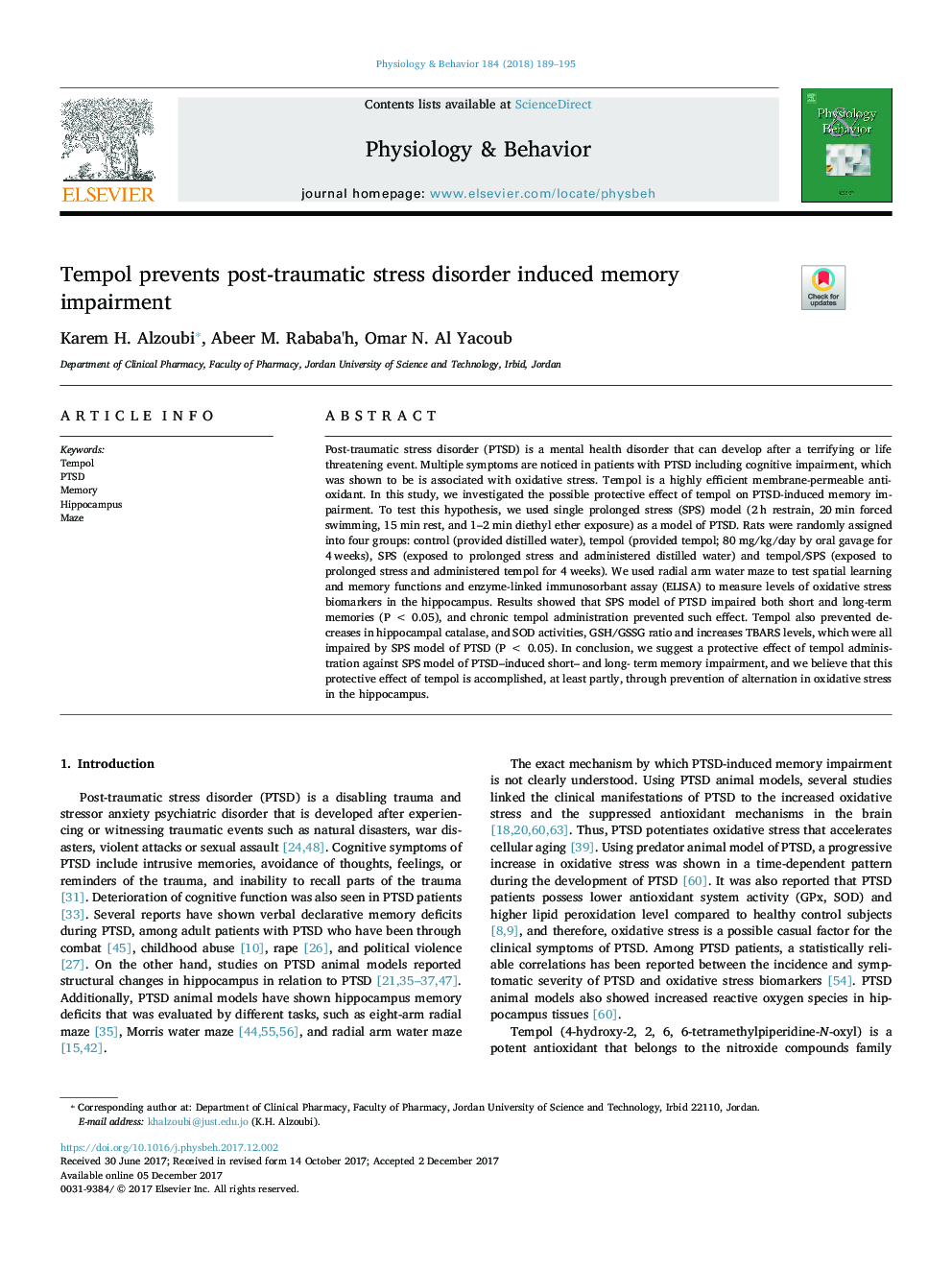| Article ID | Journal | Published Year | Pages | File Type |
|---|---|---|---|---|
| 8650712 | Physiology & Behavior | 2018 | 7 Pages |
Abstract
Post-traumatic stress disorder (PTSD) is a mental health disorder that can develop after a terrifying or life threatening event. Multiple symptoms are noticed in patients with PTSD including cognitive impairment, which was shown to be is associated with oxidative stress. Tempol is a highly efficient membrane-permeable antioxidant. In this study, we investigated the possible protective effect of tempol on PTSD-induced memory impairment. To test this hypothesis, we used single prolonged stress (SPS) model (2Â h restrain, 20Â min forced swimming, 15Â min rest, and 1-2Â min diethyl ether exposure) as a model of PTSD. Rats were randomly assigned into four groups: control (provided distilled water), tempol (provided tempol; 80Â mg/kg/day by oral gavage for 4Â weeks), SPS (exposed to prolonged stress and administered distilled water) and tempol/SPS (exposed to prolonged stress and administered tempol for 4Â weeks). We used radial arm water maze to test spatial learning and memory functions and enzyme-linked immunosorbant assay (ELISA) to measure levels of oxidative stress biomarkers in the hippocampus. Results showed that SPS model of PTSD impaired both short and long-term memories (PÂ <Â 0.05), and chronic tempol administration prevented such effect. Tempol also prevented decreases in hippocampal catalase, and SOD activities, GSH/GSSG ratio and increases TBARS levels, which were all impaired by SPS model of PTSD (PÂ <Â 0.05). In conclusion, we suggest a protective effect of tempol administration against SPS model of PTSD-induced short- and long- term memory impairment, and we believe that this protective effect of tempol is accomplished, at least partly, through prevention of alternation in oxidative stress in the hippocampus.
Keywords
Related Topics
Life Sciences
Biochemistry, Genetics and Molecular Biology
Physiology
Authors
Karem H. Alzoubi, Abeer M. Rababa'h, Omar N. Al Yacoub,
